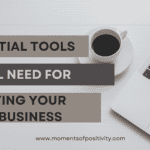Share this
A stress-free work environment leads to higher productivity, better mental health, and improved employee retention. However, the modern workplace comes with many pressures that can negatively impact professionals. By implementing proven stress management techniques, employees can transform their professional lives and achieve greater serenity at work. This article outlines six key strategies for minimizing workplace stress. These strategies are essential for maintaining a healthy work-life balance and reducing stress levels in the long run. So let’s dive in and learn how to implement these strategies for a happier and stress-free professional life.
Promote Physical Self-Care
The foundation of a calm working life is taking care of your physical health. Getting adequate sleep, eating nutritious foods at regular intervals, and exercising regularly helps regulate hormones, improve focus, and boost energy. Aim for 7-9 hours of sleep per night and 150 minutes of moderate exercise like walking or cycling each week. Meal prep healthy snacks and lunches to avoid grabbing fast food when busy. Practicing self-care will equip you to handle workplace demands.
Prioritize Mental Health
Along with caring for your body, nurture your mind by setting aside time for stress-relieving activities. Try meditating, doing yoga, or simply sitting quietly with a cup of tea. Keep workloads manageable and take regular breaks to clear your head. Set boundaries regarding after-hours work and support colleagues who are struggling. Promoting mental well-being creates a more positive environment for all.
Stay Safe with PPE
Feeling unsafe at work due to hazards or lack of protection can be tremendously stressful. Ensure you have the necessary personal protective equipment (PPE) for your role, such as high-visibility vests, helmets, or safety goggles. Check PPE regularly for wear and request replacements when needed. Speak up if you notice safety issues or have concerns about equipment or training. No job is worth compromising your health and safety.
Cultivate Relationships
Humans are social creatures, so positive work relationships boost morale and alleviate tension. Make an effort to chat with colleagues about non-work topics and show appreciation for their efforts. Offer support if they seem stressed or are having issues. Arrange team-building activities and be inclusive of remote staff. Strong bonds make the workplace feel like a community rather than just a job.
Cultivating these relationships takes time and effort, but it is well worth it in the long run. Not only can they offer emotional support during difficult times, but they can also open doors to new opportunities and help you grow both personally and professionally. Invest in building a strong support network today and reap the benefits for years.
Embrace Mindfulness
Practicing mindfulness at work can significantly reduce feelings of anxiety and being overwhelmed. Mindfulness means being fully present and aware of the current moment, rather than worrying about the future or ruminating on the past. When you feel stressed, take a few minutes to focus on your breathing, observe your thoughts and emotions without judgment, or complete a simple mindful activity like a short meditation or drinking a cup of tea. Build this skill by setting aside mindful time every day, even if it’s just 5 minutes.
Ask for Accommodations
If you feel overwhelmed by your duties or struggle with aspects of your role, talk openly with your manager. Reasonable adjustments like flexible hours, assistive technologies, or modified
responsibilities can help. Your company may also offer stress management workshops, counseling
services, or wellness benefits you aren’t utilizing. Don’t struggle alone – ask for the accommodations
you need to perform at your best.
Conclusion
By being proactive about self-care, prioritizing mental health, ensuring safety protections, building relationships, and requesting accommodations, professionals can achieve greater fulfillment in their careers. The most successful workplaces support employees holistically so they can thrive. By incorporating these techniques into your daily routine at work, you can create a more positive and productive environment for yourself and your colleagues. Remember that managing stress is an ongoing process, so be patient with yourself and continue to prioritize self-care to maintain a stress-free professional life.



